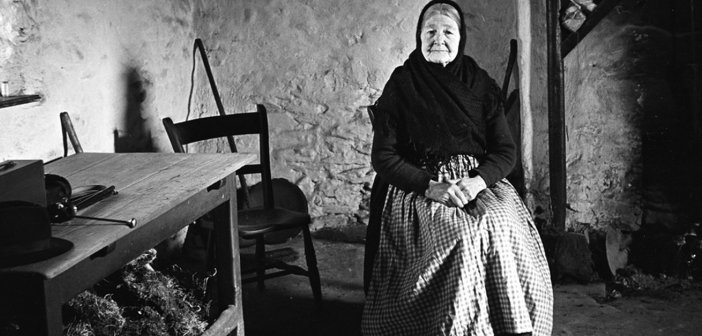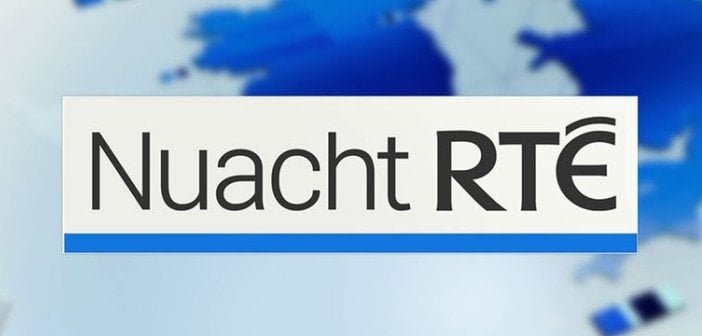Have I Got Nuacht For You
I’ve been speaking fluent English since I was a child. At age 4, like all children, I had a competent working vocabulary. I arrived at that level of proficiency without anyone teaching me. I learned an entire language without being taught the rules for participles or the past imperfect tense. Even at that young age I managed to use the idiomatic elements of English to embellish and colour my conversations. I’m not a gifted monoglot – every single human being on Earth arrives at a natural fluency in their native language in the same way I did.
But after having had 14 years of daily school-tuition I can barely speak Irish.
The problems for Irish began when teachers started to teach it – and the problem is amplified because of the way native speakers on RTE speak it.
Most of those of my generation that failed Irish in exams did so because the same God that created mutually incomprehensible languages during his towering demolition of Babel also created the utterly incomprehensible Peig Sayers. It’s now obligatory to blame the Pain In The Blaskets for our lost opportunity to become bilingual. But it really was a mistake to teach young people Irish via the biography of an old woman who had completely lost the use of her hair and who lived her life up to her neck in dung and misfortune.

But old Peig was not entirely responsible. While she was indeed an impediment to me ever developing an Irish vocabulary sufficient for me to wax eloquent on current affairs, it is current affairs that bring me back to RTE. If flawed teaching methods and ill-chosen course material crippled the chances that our language might flourish, then Irish speakers on RTE’s Nuacht have given it the coup de gras. [pullquote]Most of my generation that failed Irish in exams did so because the same God that created mutually incomprehensible languages also created the utterly incomprehensible Peig Sayers.[/pullquote]
Even to an outsider, the audible disparity between the sound and cadence of school-learned Irish and RTE Irish must make them appear like two separate languages. RTE Irish is expressed in a regionalised and floridly accented manner, and as such, it ceases to be national and becomes localised and non-inclusive. In short, Nuacht readers aren’t doing the language any favours.
This is not a matter of the accents of “culchies” versus the flat verbals of the Dubs; no, it’s a matter of when their elisions, enunciations and rhotic embellishments divorce what’s being spoken from universal comprehension. It’s as if Nuacht readers are, like peacocks, proudly displaying their speaking ability with coloured vocal acrobatics in order to reveal their high level of competence.
The English have Received Pronunciation, or RP for short. It’s a mode of speech that is unaccented and uniform; it’s a baseline from which that language reaches out not just to its own regions, but to the world. The Irish spoken on RTE doesn’t even reach as far as Crumlin.

Hearing our native language expressed in broadcast media in a manner that sounds familiar would only promote comprehension. It may be sacrilegious to even suggest, but if a homogenised speaking ability were to become an objective for teachers and broadcasters alike, then a new generation of Irish speakers might emerge. But they will never emerge as long as the broadcast locutions of RTE speakers continue to overwhelm and alienate.[pullquote]Teach me to speak it, teach me to understand it, but please don’t burden me with its grammatical architecture.[/pullquote]
If the objective of Irish language organisations is to elevate our native tongue to the equality of bilingualism, then they should advocate that it should not be taught. Counterintuitive, I know. But for fluency to come easy, Irish should not, at least initially, be grammatically studied. Teach me to speak it, teach me to understand it, but please don’t burden me with its grammatical architecture – having to decline verbs was what accelerated the decline of the language.
And that’s sad.
Irish is an expressive, even dramatic language; I feel ashamed at being unable to speak it well, but I’m a lost cause. The hope for the future is to stop making Irish a studied school subject and to make it a naturally acquired language; that, and a less florid and more democratic mode of pronunciation from RTE Nuacht readers. Nothing else to say, except, anois an aimsear.
